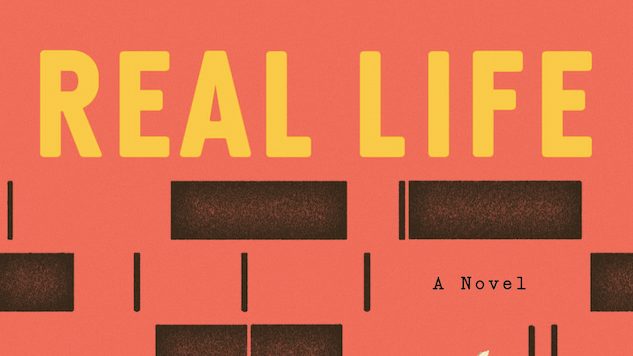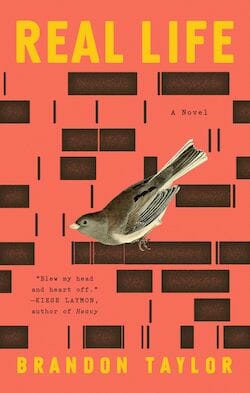A Turbulent Weekend Changes a Grad Student’s Future in Real Life

Back when things were bad, I’d have days that would last weeks or mere seconds, weekends that would be remembered only by the crescent moon burned into the back of my hand.
Brandon Taylor knows the power of dilation and collapse, of pulling a moment far enough apart to fit your past and your future inside of it. Real Life, Taylor’s debut novel, fits an entire lifetime into a weekend and stretches that weekend into a novel. It’s one of those stories where little truly happens in terms of geography or choreography; its actions are compressed into the pauses between words, smoldering with the lingering heat of a day’s sun and embarrassment, frustration and harassment, violence and rage.
 Set in a Midwestern graduate school in a lakeside city, Real Life spans a summer weekend in the life of Wallace. But Wallace is not a middle-aged professor—thank God—or a white struggling writer; he is black, queer, quiet and from the deepest South, often found arched over microscopes in faithful labor of brutal biochemistry. Were Wallace not who he is, the book would be another indulgent novel of the Iowa Writers’ Workshop ilk. But a gazing ball means something else when the one reflected in it has been historically underrepresented.
Set in a Midwestern graduate school in a lakeside city, Real Life spans a summer weekend in the life of Wallace. But Wallace is not a middle-aged professor—thank God—or a white struggling writer; he is black, queer, quiet and from the deepest South, often found arched over microscopes in faithful labor of brutal biochemistry. Were Wallace not who he is, the book would be another indulgent novel of the Iowa Writers’ Workshop ilk. But a gazing ball means something else when the one reflected in it has been historically underrepresented.
Wallace’s intricate and painstaking work with translucent nematodes is the book in microcosm. The minutia of science is the minutia of the novel, and every moment is gravid. A lakeside party, new love with an old face, tennis, lab work—none of these would stand out as particularly striking until they are teased apart, examined in their component pieces and then spread far enough out that Wallace can fit his entire life, both lived and yet to be, within them.
This is the slow power of the extended moment. By spreading Wallace’s weekend like a cracked ribcage, Taylor can take the time to expose the racism and hate and love and confusion and anxiety and anomie which runs inside as true and crucial as blood. It’s like pausing a videogame to consider the next room, allowing the time and space to shape a life.
Back when things were bad, I had days and weekends and rages and crying jags and walks that would last for text messages and the lifespan of a star. Inside those space I could luxuriate, suffer, be formed. So, too, does Wallace become real, innervated and oxygenated, less ink and paper but blood and thoughts, within the gaps Taylor has created. Some are overburdened and taxing, on both Wallace and the reader, but a spear between the ribs is a small price to pay to experience Real Life.
B. David Zarley is a senior staff writer for Freethink and an essayist, book and art critic. His writing has been featured in The Atlantic, The Verge, Jezebel, VICE Sports, Frieze, Hazlitt and numerous other publications. He lives in Chicago.